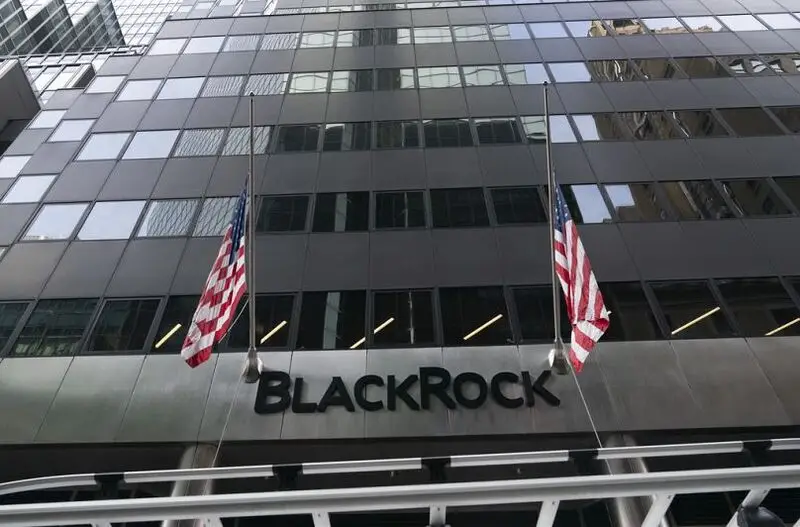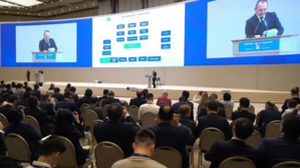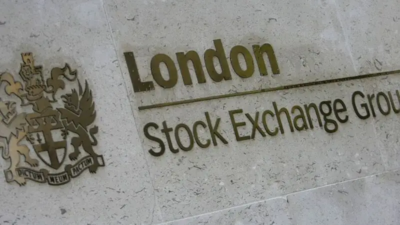Euroviews. Investment fund managers' decision-making is affected by politics. Here's what that means
Fund managers are meant to be focused on value creation, and paid to make decisions that financially benefit the firm they invest in and, by consequence, the fund they manage.
Yet, recent research suggests that’s not always the case and that, in the United States at least, their decisions can actually be driven by political motivations.
What’s more, these managers then look to hide that bias by engaging in “signal jamming” to avoid any potential backlash for breaching their fiduciary duties.
Not all behaviour is as expected
This conclusion is based on an analysis of the proxy voting behaviour of asset managers at different company AGMs over the last twenty years.
Specifically, we looked at how their voting behaviour was influenced by their politics, identified by their personal contributions to campaign candidates in either the Democratic or Republican parties.
At first glance, the patterns of voting seemed relatively neutral or balanced. In other words, fund managers did not appear to vote in support of CEOs whose political views they shared.
Yet, when we examined voting behaviour more closely, we found this wasn’t really the case.
Instead, when a vote was contentious — which we defined as when the management recommendation differed from the recommendations by proxy advisory firms who look to guide institutional investors (e.g. Institutional Shareholder Services, or ISS) — or very close to the asset managers consistently voted in support of CEOs whose political views they shared. This was regardless of the financial benefits that such action entailed.
While the fact that individuals are biased is not surprising, what was more unexpected was how they then tried to conceal this bias. In all the other non-contentious votes, the fund managers voted against the management.
As a net, at the overall level, the supporting behaviour is “hidden”. That is, on average fund managers vote in the “good governance way” but support the CEO when he most needs it.
Caught in bad governance
Over the period studied (2005-2017), Republican and Democratic supporters both engaged in this deceptive voting.
What’s more, this false flag behaviour intensified when the opposing political party was in power. Republicans would do more to hide their true allegiance through their voting when Democrats were in the White House and Democrats would hide more when Republicans ruled the roost.
Interestingly, this “signal jamming” behaviour is more pronounced when there is greater public scrutiny at play.
This could be an increased focus on the fund behaviour, for example for fund families and funds that have more influence on the voting outcomes or are more involved in the political arena; for funds where the investors are more sensitive to performance-related implications; and, when the firm is under greater public view, perhaps because of the size of the firm, firms listed in the S&P 500 index, or firms receiving more news coverage.
This behaviour hints at the fact that this voting behaviour is conscious and deliberate.
Perhaps such subterfuge is to be expected. Asset managers are just human, and we tend to support those who we perceive to be on the same team.
Such behaviour could even be justified if there was some form of benefit for the fund managers acting this way — say, the fund manager helped the CEO during the proxy voting process in exchange for some useful information about the firm.
Yet, this simply wasn’t the case. Instead, this behaviour had a negative impact on value creation for the company and therefore for the mutual fund holding a stake in it. By following their Politics, the mutual funds' managers were practising bad governance.
Data doesn't lie
Interestingly, given that this breach of fiduciary duty is more likely to be sanctioned by professional investors in the funds, such behaviour is concentrated in funds sold to retail investors and less for funds sold to institutional investors.
This is a particular issue when you consider the outsized role that mutual funds run by the big four firms: BlackRock, Vanguard Group, Fidelity Investments, and State Street Global Advisors play in US investments. Combined they account for around US$30 trillion (€28.13tn) worth of investments in thousands of individual US firms.
While the likes of BlackRock maintain clear rules that prevent them from sitting on boards of companies they invest in, they remain shareholders.
As a result, they are obliged to vote during those firms' AGMs. In principle, that obligation means voting in a way that improves the fiduciary value of the company, but as our research shows, this is not always the case.
On paper, BlackRock does have checks and balances in place, through a stewardship team, which is tasked with ensuring a coordinated approach to voting. Yet the reality is that this team consists of less than sixty people, while BlackRock has Investments in over 10,000 companies, which means thousands of AGMs and thousands of votes each year.
It's hard being level-headed in a heightened political climate
The problematic nature of voting rights for both companies and investors in terms of who is exercising those rights and how, is ultimately an issue of governance.
By listing a firm, both the firm and those invested in it gain the benefit of liquidity but at the same time are subject to the “political” manoeuvring of short-term owners who, based on the voting behaviour we observed, don’t practice good governance.
This should be expected. Mutual funds don’t look to govern a company through voting but by “walking the Wall Street way” — that means selling their shares when they dislike the performance of the company.
Direct monitoring and voting are more typical for long-term investors and typically family firms.
This makes a difference between a stock-exchange-based governance model (US) and a more owner-based governance model (Europe).
In the US model, governance is provided by selling shares and allowing a company to be taken over by activists who discipline the managers. In the European model, big blockholders of shares play a monitoring role and often sit on the board.
As the US heads to the polls later this year, American politics is clearly set to get more divisive and heated.
The concern is how this heightened political climate will influence the behaviour of investors and particular mutual fund managers.
Following their party line when it comes to proxy voting could end up having a very negative impact on an individual company’s bottom line.
Massimo Massa is Professor of Finance at the Institut Européen d'Administration des Affaires (INSEAD), and Lei Zhang is Chair Professor at the Department of Computing of the Hong Kong Polytechnic University.
At HyipScan.Net, we believe all views matter. Contact us at view@euronews.com to send pitches or submissions and be part of the conversation.
Maybe You Like
London Stock Exchange urged to do more to hold onto retail traders
The UK stock market needs to improve investor communication and engagement in order to retain its individual traders, according to a report from online trade and investor provider CMC Markets. ADVERTISEMENTUK retail investors are increasingly...
Hargreaves Lansdown rejects private equity takeover bid
The UK investment platform says the offer from a group including the Abu Dhabi Investment Authority undervalues the firm. ADVERTISEMENTHargreaves Lansdown has rebuffed a takeover proposal worth £4.67 billion (€5.48 billion) made...
Ferrovial set to offload UK regional airports amid Heathrow deal uncertainty
Ferrovial is planning to sell its stake in three UK regional airports amid difficulties in finalising its £2.4bn sale of a 25% stake in Heathrow. ADVERTISEMENTSpanish infrastructure company Ferrovial is reportedly putting up for sale...






























